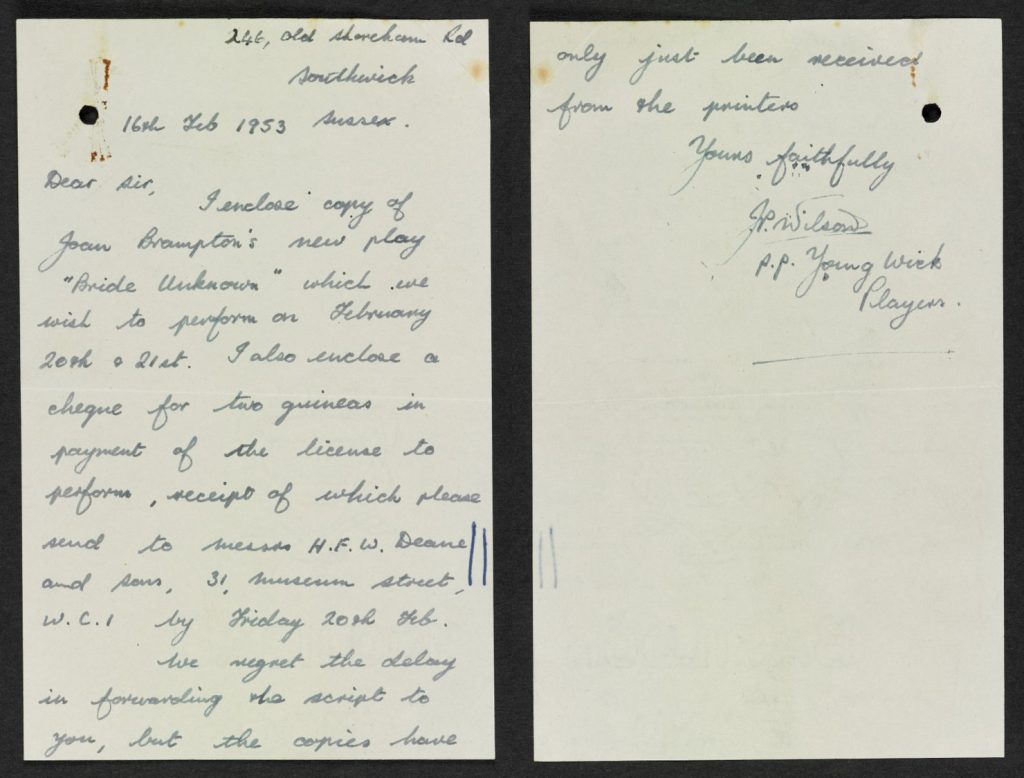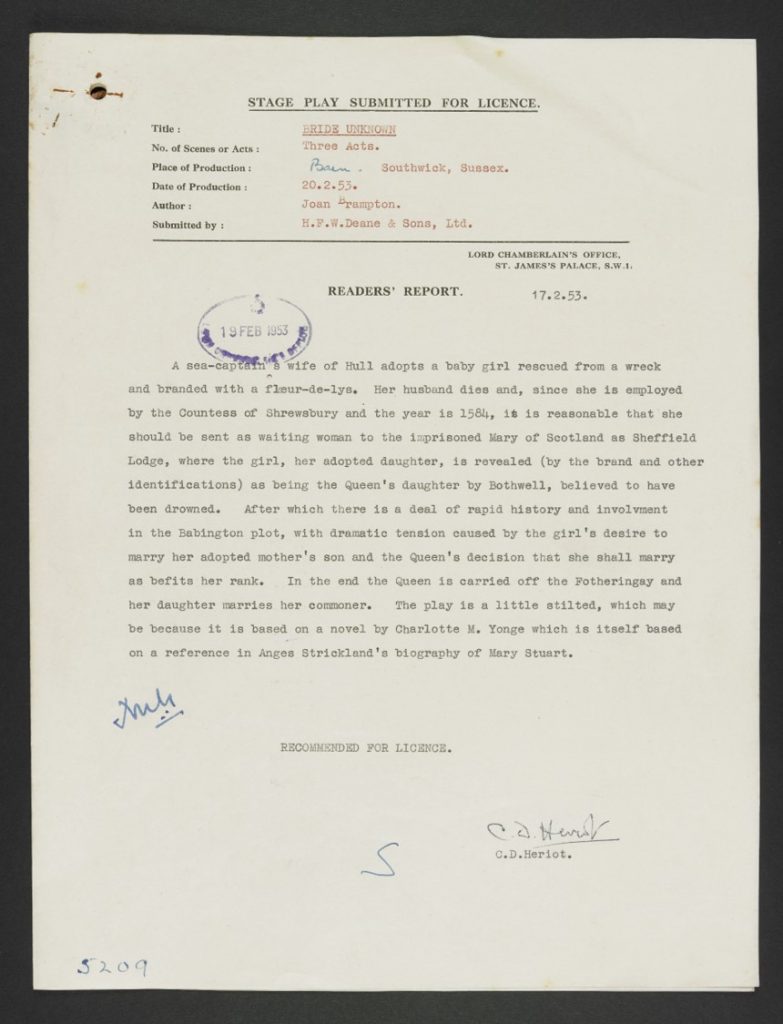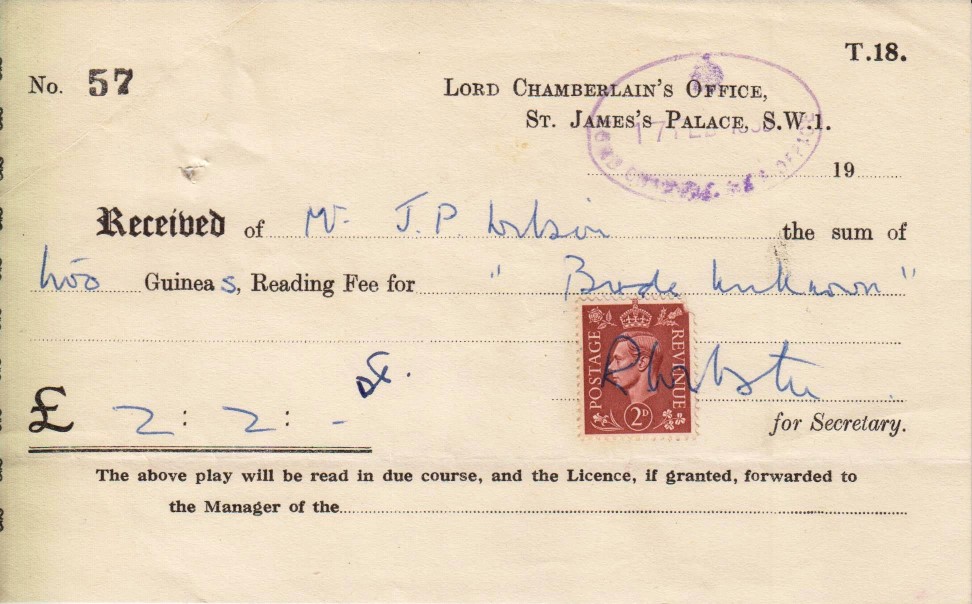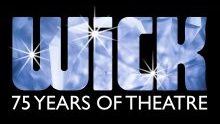The Lord Chamberlain’s Office and new plays.
There had been a permanent official in charge of staged entertainments since 1545, in the shape of the Master of the Revels, but only after the return of Charles II in 1660 did the Lord Chamberlain begin to take a serious interest in censorship and the regulation of the theatre.
The first Theatres Act of 1737 came about because Sir Robert Walpole was suffering under the satirical attacks of Henry Fielding and others on the shortcomings of his ministry. This act reduced at a stroke the number of “legitimate” theatres in London to two, Covent Garden and Drury Lane. While this provision was lifted by a second Theatres Act in 1843, the censorship of new plays continued until 1968.
Some of the new regulations laid down by the 1843 Act continued unchanged for more than a century. The Lord Chamberlain’s Office levied a charge for reading a play – one guinea (£1.05) for a one act play, and two guineas (£2.10) for plays longer than one act.
The Office kept extremely careful records of all plays and monies received, largely because the Examiner of Plays, the functionary whose job it was to read each play and advise the Lord Chamberlain whether they were fit for licence, was paid these sums of money rather than a salary.
These careful lists survive in the British Library as the Lord Chamberlain’s Day Books.
The Examiner of Plays at the time of Bride Unknown was C D Heriot [ 1905 – 1972 ]. These images are from The British Library archives; referenced
‘Lord Chamberlain’s reader’s report for “Bride Unknown”’, 19 Feb. 1953. Reader’s report 5209, LCP Corr. 175






